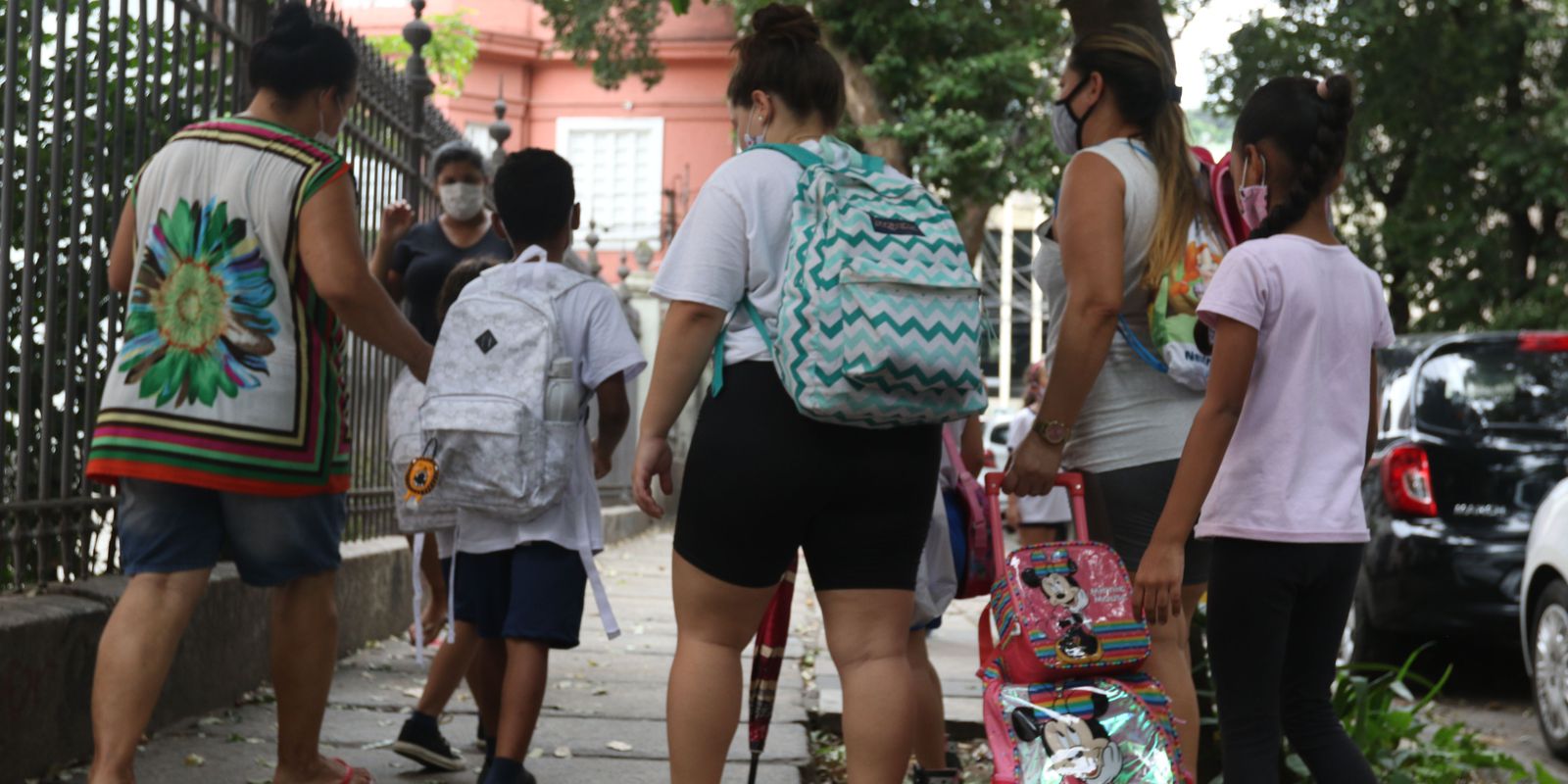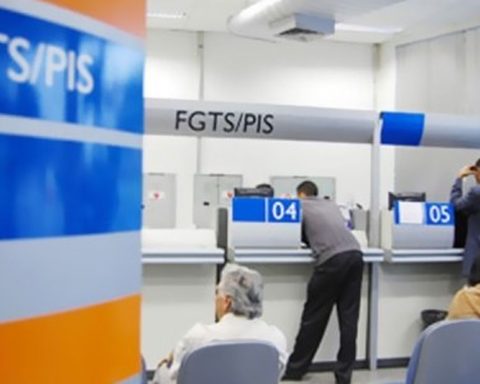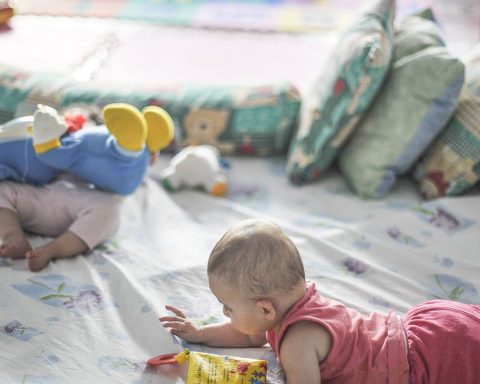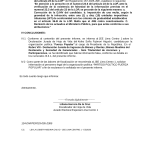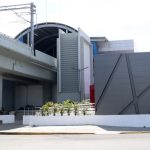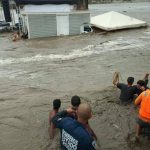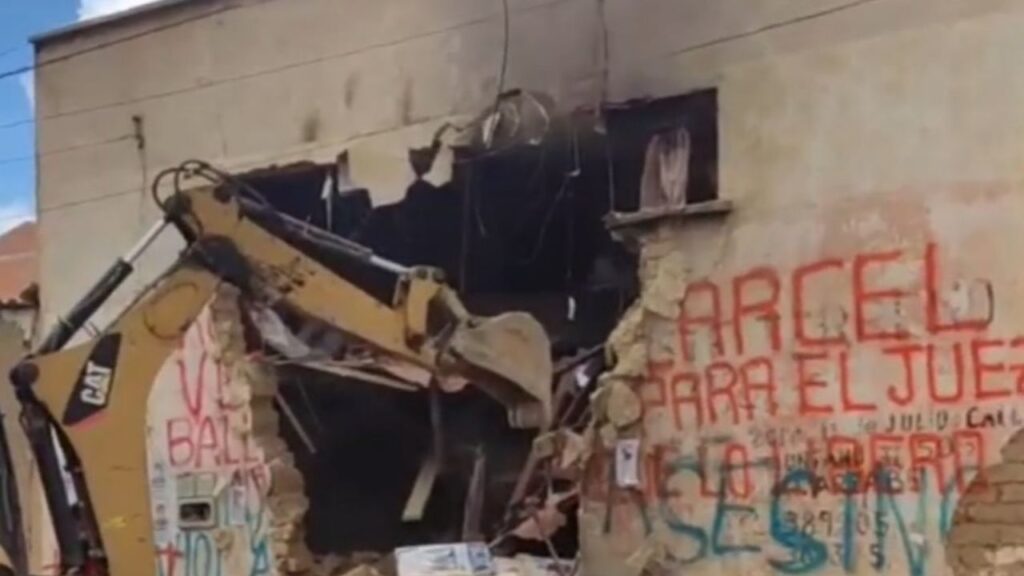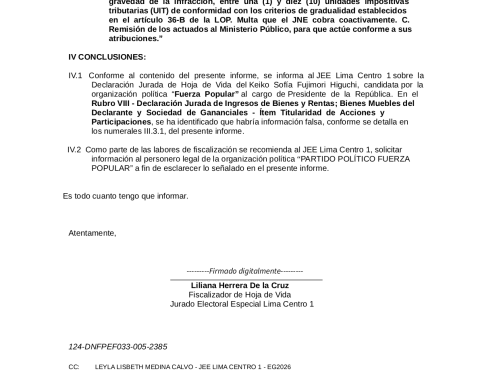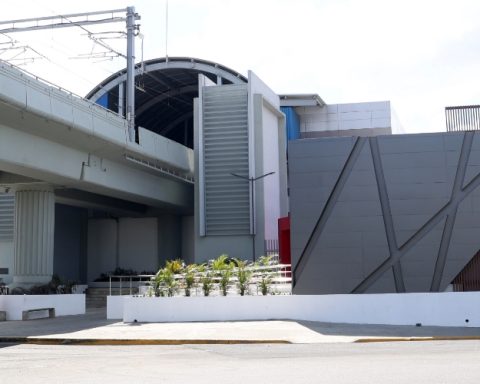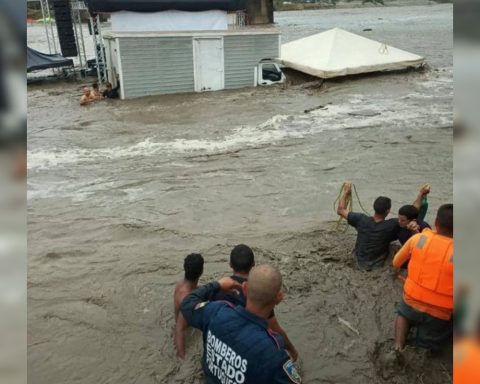The Oswaldo Cruz Foundation (Fiocruz) updated today (11) its recommendations for the prevention of covid-19 when returning to school, following new criteria from international health authorities and national medical societies in the face of the Ômicron variant. Guidance from Fiocruz’s Return to On-site School Activities Working Group can be consulted in a technical note which includes protocols on topics such as isolation, testing and suspension of classes. The group recommends that teaching be preferably face-to-face.
“Under the strong recommendation of international organizations and sectors of the Judiciary, among others, it is recommended that this return be in person, since the social, emotional, educational, health and economic losses no longer allow the remote model to be maintained as preferred for the learning process of children and adolescents”, states the technical note.
When introducing the text, the researchers highlight that the Ômicron variant already represents more than 95% of the SARS-CoV-2 genomes sequenced in the country, and that its most striking feature is its high transmissibility, which also implies greater potential for home transmission. . Citing data from the United States and Brazil, the researchers add that, with the predominance of this strain, the number of cases of covid-19 among children and adolescents has increased, apparently without a percentage increase in hospitalizations and deaths.
Isolation
The document contextualizes that health authorities in the United States and Europe established shorter criteria for isolation and quarantine with the arrival of the Ômicron variant, and that the Pediatric Societies of Rio de Janeiro and São Paulo also updated their criteria in light of the new strain.
Fiocruz guides that, for adults or children with mild or moderate cases of covid-19, 10 days of isolation are necessary from the date of onset of symptoms. Even so, the return must be conditional on the absence of symptoms, fever or use of antipyretics in the last 24 hours. If another test is performed on the fifth day and the result is negative, this isolation time can be reduced to seven days.
Asymptomatic confirmed cases need five days of isolation from the date of the positive test, provided that a new test on the fifth day is negative. If the result of this new test is positive, the isolation extends to seven days.
The foundation reinforces that the use of a mask is essential. For people who cannot wear masks due to medical contraindications, the protocol changes if they test positive for covid-19 without showing symptoms. In this case, the orientation is that they repeat the test on the fifth day and, if positive, the isolation should be 10 days instead of seven. For people who cannot wear masks and have symptomatic cases, the guidelines are the same as for the general population.
When the child or adult has contact with an infected person, the quarantine must be 10 days from contact, or seven days if a test is negative on the fifth day after contact. If the test is positive or there are symptoms, the recommended criteria for symptomatic or asymptomatic cases apply.
For people who have had severe Covid-19 or are immunosuppressed due to illness or use of immunosuppressants, the recommendation is to quarantine for 20 days, returning only if in the last 24 hours you have no symptoms or fever and have not used antipyretics.
Given the information of a positive case, experts advise that contact tracing should be encouraged and tests should be carried out. Suspension of classes for a class should only be adopted as a last resort and is only recommended if there are three or more confirmed simultaneous diagnoses, which must be informed to the health authorities and accompanied for the screening of related cases. The closing of the school should only occur in case of recommendation from the local health authorities.
“We emphasize that social isolation, the adoption of remote teaching and the discontinuity in school attendance have been responsible for the expansion of psychosocial development gaps, among other problems already mentioned, such as food insecurity and school dropout, reasons for which we reinforce the need to maintain face-to-face classes”, defends Fiocruz.
Vaccination and testing
In addition to case screening, the schools’ covid-19 prevention protocols must observe the ventilation of the environments, the proper use of masks, hand washing and social distance, recalls Fiocruz. These precautions should be intensified, especially at mealtimes, avoiding having them in places without proper distance and ventilation.
Fiocruz also explains that the vaccination of the entire school community is of great importance in controlling the transmission of the virus, and that the vaccination of parents and education professionals also promotes the indirect protection of children under 5 years of age, who cannot yet be vaccinated. .
“We emphasize, as pointed out in other technical publications of this Group, that carrying out surveys to assess local vaccination coverage is essential to increase the safety of those who attend schools, as well as to adopt educational actions for communities and groups in which there is greater resistance. or low adherence to vaccination”, says the technical note.
The researchers also highlight that the tests are an important tool for detecting and isolating cases, as well as serving as a reference to determine the correct isolation time. They assess that the availability of covid-19 self-tests by the Unified Health System (SUS) would also be a strategy that could be used to control infections in the school environment, combined with vaccination, to help ensure the maintenance of face-to-face school activities. . In the event of a positive self-test, however, it is still necessary to seek medical attention.
“In Brazil, without the distribution of self-tests by the SUS, there are estimates that the self-test will have values between R$ 80 and up to R$ 400 for sale in pharmacies. maintaining the pressure for tests in basic health units”, say the researchers who signed the technical note.
An important tool highlighted by the document is agile communication between schools, parents and students. Fiocruz recommends that schools should plan a rapid system of information and surveillance of covid-19 in the school environment, including using WhatsApp groups, questionnaires or other forms of rapid communication, so that parents, students and education workers can send immediate information for decision-making by managers.
